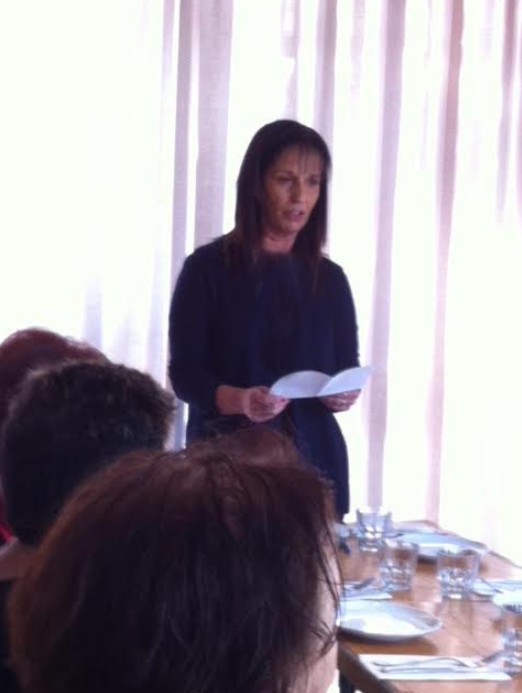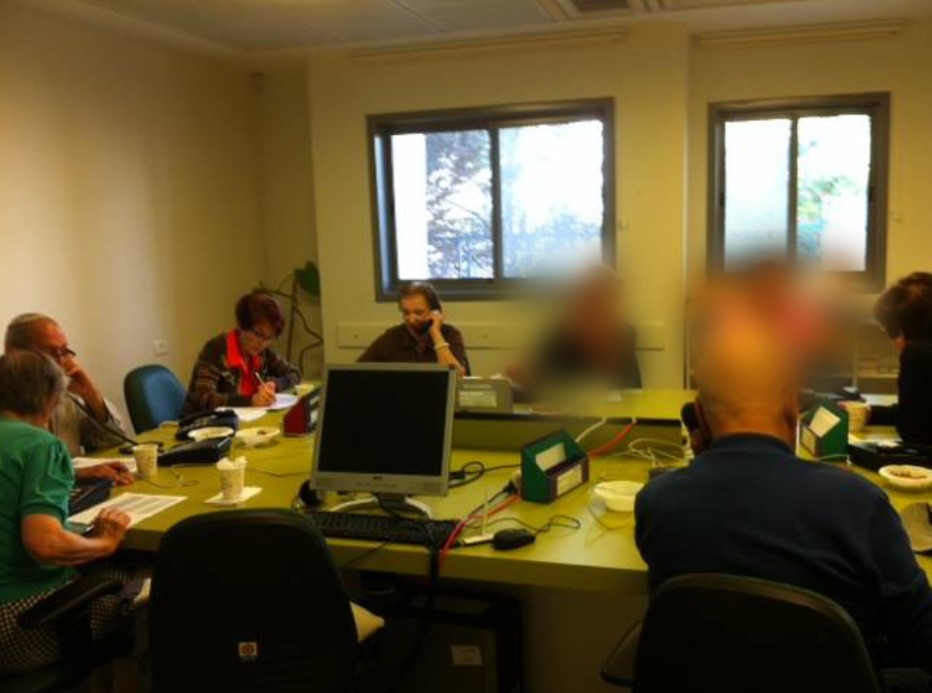Kochav Cohen: "The Moment an Elderly Realizes They Are Alone 24/7 Is the Hardest"
Kochav Cohen leads a call center run by hundreds of volunteers to alleviate loneliness in the elderly. But what happens when encountering a senior with a severe medical condition who refuses to go to the hospital, or when an elderly woman asks specifically for a blind volunteer to light *Chanukah* candles with her? "Here, we see the beautiful people of Israel," Kochav shares with excitement.

Anyone with grandparents or elderly parents knows this feeling well: trying to visit, talk, and be with them, but it's never enough. The need is great; parents require a listening ear for long hours, and there's not always someone available to talk to them.
To provide this listening ear, especially outside of family, a special call center was established by the Melabev Association, headed by Kochav Cohen. "My goal at the center is to alleviate the loneliness of the elderly," she explains. "For this, we have hundreds of volunteers (fully voluntary, with no pay), each receiving a list of seniors to call and converse with. After each call, the volunteer notes what was discussed, so they can continue from the same point next time."
 Kochav Cohen
Kochav CohenHow did you come into this role?
"It all started when my mother was diagnosed with Alzheimer's," Kochav shares. "It was the 'boom' of my life. In an instant, she went from a happy, functioning woman to someone dependent. I sought a day-care center for her but found it cold and unemotional. Seeking something else, someone recommended Melabev. I remember walking in for the first time, my stomach churning, fearing inappropriate treatment, but soon realizing they genuinely respect and honor people."
"Nevertheless, I struggled to leave her alone all day, so I decided to volunteer and accompany her. That's how I came daily and eventually learned about the upcoming call center, eventually leading it."
The Beautiful People of Israel
"Our goal at the center is to alleviate the loneliness of the elderly," Kochav repeats, "because it's hard to express what an elderly person endures being at home 24 hours without engagement or someone showing interest."
When asked about the volunteers, Kochav responds that there is a wide variety. "There are student volunteers, teenagers, and also those who volunteer without a particular reason. Additionally, there is a large group of retirees looking for something meaningful to do after work, and many choose us."

One exceptional volunteer, according to Kochav, is Maya Marin, a blind woman volunteering for five years, receiving seniors' phone numbers as recordings. "When the seniors want her to visit, we allow it, provided she has proper accompaniment. Recently, during *Chanukah*, an elderly woman asked Maya to visit and light candles together. We arranged transportation, and together they lit the candles, an incredibly moving moment. There’s nothing more beautiful than a blind girl bringing light to an elderly’s home."
"Furthermore, we aim for volunteers speaking different languages," Kochav notes, "including French, Russian, English, and even Hungarian. Our oldest volunteer, Eliyahu Romanov, is 93 and believes age is just a number, coming in his car, joking, and uplifting everyone."
Another story involves a not-so-young woman facing muscular dystrophy who volunteers twice a week. Her husband’s Kollel head allows him to accompany her, assisting her for two hours until she finishes calling the seniors on her list."
A Lifesaving Connection
Kochav talks about a special initiative: "Beyond phone calls, we offer home visits for small repairs like fixing blinds, cupboards, or squeaky doors, which don't need a professional. Volunteers happily contribute their skills to help. Some even teach seniors computer skills or programming."
"The volunteers are amazing," she emphasizes, "truly deserving admiration. I always say those seeking beautiful Israel, which is rare today, should visit our center."

The center occasionally helps solve persistent issues for seniors by contacting companies or public bodies. "Some corporations exhaust seniors' energy," Kochav explains, "especially with voice recognition systems that require clearly said names, which is challenging for those with weak voices."
Unmatched Satisfaction
Volunteers at the center find no material rewards, not even travel reimbursements, but the immense satisfaction is evident."
"A young girl who volunteered flawlessly for a long period told me before finishing the role: 'I need to thank you, as after volunteering, the first thing I did was call my grandmother, realizing the importance.'
Another girl, after a shift, approached me trembling with emotion. A senior she supported had 14 children, yet hadn't received calls from any for weeks. It was the calls from the center that kept her going."
Kochav also shares rescue stories: "We assisted a senior in a one-room apartment with damp walls and water worms. Despite multiple appeals, without any aid, a volunteer’s Amidar connections secured him a new apartment."

And the heart-wrenching tale: "Years ago, a volunteer aided a lonely senior, living with pets. Ill and needing a catheter, he refused fearing for his pets. Giving his meals to them, he fell into malnutrition. In the end, the volunteer assured him of care for the animals during hospitalization, which indeed saved his life. That was the ultimate reward volunteers could receive."
Yet, Kochav notes volunteers face hard times, especially dealing with loss. "It happens often," she says sadly, "with very elderly people, every loss feels like family, leaving tears in everyone’s eyes. It’s tough, but I remind them our mission is to continue."

